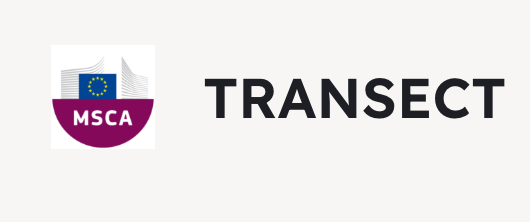
Call for Papers for an International Conference on
Re-Writing Morocco
Poetics, Politics, Philosophy, and History in Multiple Forms
Rome, November 21-22, 2024
Every society, in writing its own history, writes the rime of its rooting; and through this gesture, it projects onto the past that which, in the present, remains concealed. Yes, history is the question of this concealment and the germination of its multiple identity.
Abdelkébir Khatibi, 1983
Writing is leaving a trace, and leaving a trace does not only and necessarily mean preserving memory, but also selecting, excluding, concealing, and mystifying. Writing means escaping the “great repression” of orality and addressing the world of official culture to demand recognition and visibility.
The Maghrib, and Morocco in focus here, has been revisiting its identity sources and multiple pivotal historical narratives especially since the early postcolonial period of the 1960s. Besides classical historiography and its development into new historiography by scholars trained in modern social sciences, literature has also played an important role in revisiting these sources to engage with the new cultural and political changes in society and in the global community at large. The connections between the Maghrib and the French cultural scene in the 1960s played a role in fusing literature with socio-political dynamics through “engaged literature,” that postcolonial and decolonial elites adopted as a means of communicating their liberation from both internal and external tutelage.
However, with the global socio-cultural changes during the last three decades, and the reinvigoration of the Arabic language space through a variety of approaches – from new educational policies to major literary awards –, old genres have resurfaced and new ones have emerged to contribute to, if not to lead, the current Arabic written culture in the whole Arabic speaking world, in the Maghrib, and in Morocco in particular.
If self-referentiality has given way to a “realist turn” in writing, expressed in various languages (Arabic, French, Spanish, and gradually also in Tamazight and English, besides the languages of the Moroccan diaspora), historical reality has made an important resurgence, too, and prominent scholars and public intellectuals have made of historical novels their primary genre of expression, revisiting the Moroccan identity, its plurality, diversity, aspirations, as well as delusions and frustrations. Important aspects of what is seen as common-identity sources and features are revisited, challenged, and unofficially re-aligned with new personal or communal aspirations that move from the local/national to the regional/Maghribi and the broader Arabic contexts and beyond, in communication with the Mediterranean, the Atlantic, and also the Far East. Morocco’s writing space is transnational; it goes beyond the national borders by expanding to diasporic contexts and by means of translations that not only help circulate Moroccan literature abroad, but also put the different languages spoken in the country in communication with each other.
Engaged writings, resistance and prison literature, philosophy, spiritual literature, gender novels, women writings, national minority literatures, haiku poetry, and many others are among the various expressions that contemporary Moroccan cultural scene shares with its Maghrib and Arab milieu, and similar milieus worldwide, thus shaping “a world of changing frontiers, where national borders and literary space do not necessarily fit” (Fernández Parrilla 2016).
This conference aims to bring together local and international scholars specialising in various Moroccan cultural expressions that especially highlight the poetic/aesthetic, political, philosophical, and historical, in connection or comparison with Maghribi, Arabic, Mediterranean, and global resemblances. Paper proposals for participation are invited to examine these major themes, but not only:
- Poetics, aesthetics, and communication with world literatures;
- Politics, memory, and political autobiographies;
- Philosophy and the re-writing of Morocco’s intellectual history;
- Historical fiction and official history in contemporary Moroccan historiography;
- Cultural industry and book circulation in contemporary Morocco;
- Moroccan literary and cultural production and its reception in the Arab world and beyond;
- Writing in multiple languages and issues of identity;
- Moroccan diaspora writings and reception back home;
- Women writings and gender novels;
- Literature on and by national minorities and minoritised communities;
- The Maghrib in Moroccan cultural productions.
A selected number of papers will be published in a dedicated issue of the Brill journal Studi Magrebini/North African Studies, following positive double-blind peer review.
A limited number of partial grants may be available to support young scholars, and scholars from disadvantaged contexts. Applicants who fall into these categories and wish to be considered for the grant should send a short cover letter, besides their abstract and short bio, to explain their eligibility.
—
Confirmed keynote speakers
Brahim El Guabli, Williams College, Massachusetts
Sonja Hegasy, Leibniz-Zentrum Moderner Orient, Berlin
Featured IPAF authors from the Maghreb
Tareq Bakkari, Morocco
Amira Ghenim, Tunisia
Said Khatibi, Algeria
Abdelmajid Sebbata, Morocco
—
Deadlines
Abstract submission deadline: 7 June 2024
Notification of acceptance: 30 June 2024
Conference: 21-22 November 2024
Full papers submission deadline: 31 May 2025
—
Organisers
Fernanda Fischione, Sapienza University of Rome
Mohammed Hashas, Tor Vergata University of Rome
—
Contacts